ESG Insight with …
Posted on February 19, 2024A regular blog from a member of our ESG team on the latest happenings within the world of ESG at IPLF&K!
Our first blog comes from Tim Brammer, Manager – Sustainability, who as part of a WRAP Collective Action Project, recently visited Southern Spain, and met up with our Spanish colleague, Carolina Carral, Technical Team Leader while he was out there.
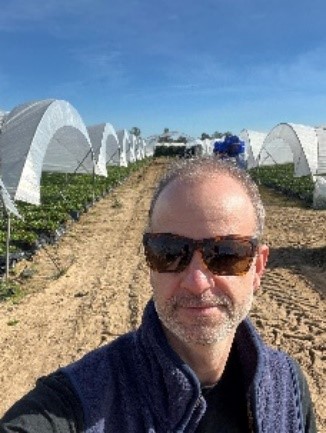
For those of you who don’t know, under the Courtauld 2030 Water Roadmap, WRAP, which stands for ‘Waste & Resources Action Programme’, is a climate action non-governmental organisation (NGO) working around the globe to tackle the causes of the climate crisis and give the planet a sustainable future.
In September 2022, Asda agreed a minimum pledge of £15,000 to fund a three-year commitment to water stewardship in Southern Spain, focusing on two areas: Doñana and Mar Menor. Asda are also commitment to the same agreement towards water stewardship in South Africa.
WRAP’s Collective Action Project in Southern Spain aims to help improve the sustainability of water management in the area, dramatically reducing water-related risks in the main fruit and vegetable production areas (specifically Andalusia, Murcia, and Valencia).
My visit was to understand local nuances and ties to international value chains, which will hopefully pave the way for future collective actions.
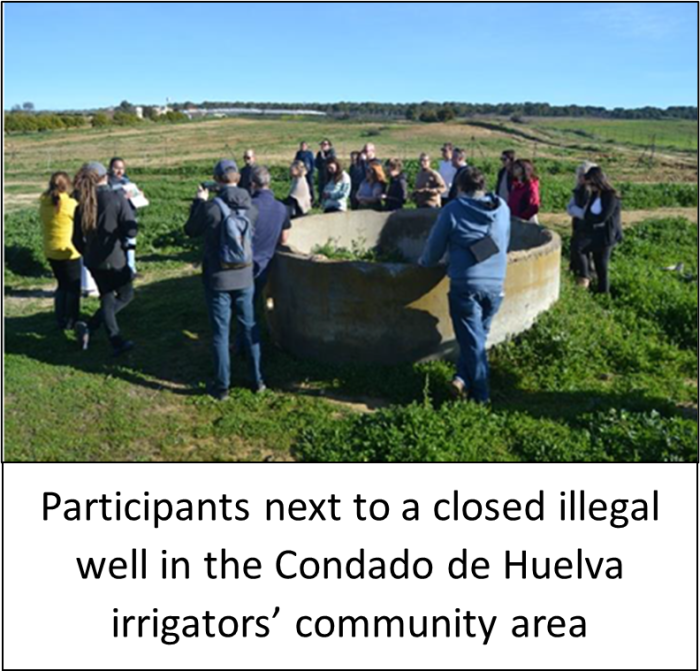
On 23rd January, we explored berry production areas and ecosystems – gaining insights into the delicate balance between agriculture and nature amid water scarcity and climate change challenges. We first visited an area where the local irrigation community of Condado explained the efforts they are conducting to restore La Cañada stream to us – closing illegal wells and irrigation water ponds that were found on the boundaries of the ecological corridor.
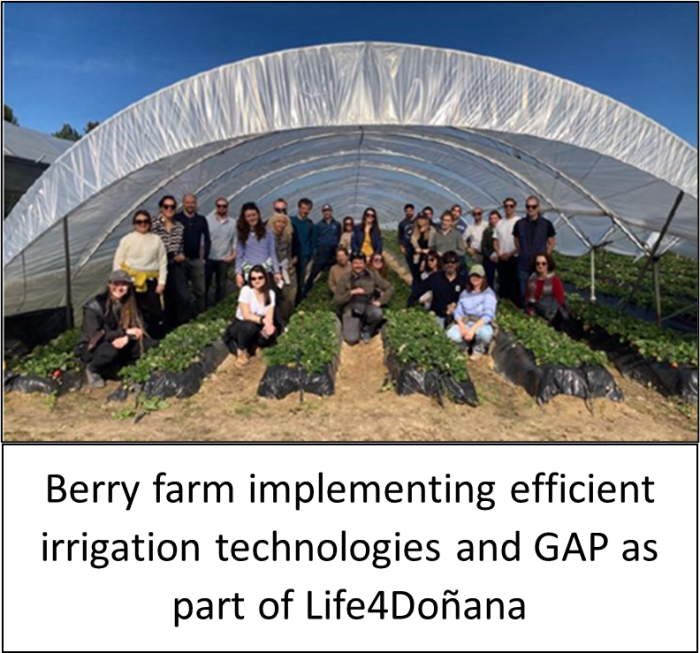
Afterwards we visited an organic berry farm using an automated irrigation system developed by the Life4Doñana project, which saves on average 15% of water and 10% of nutrients. The farm also implements Good Agricultural Practices (GAPs) such as mechanical weeding and integrated pest management.
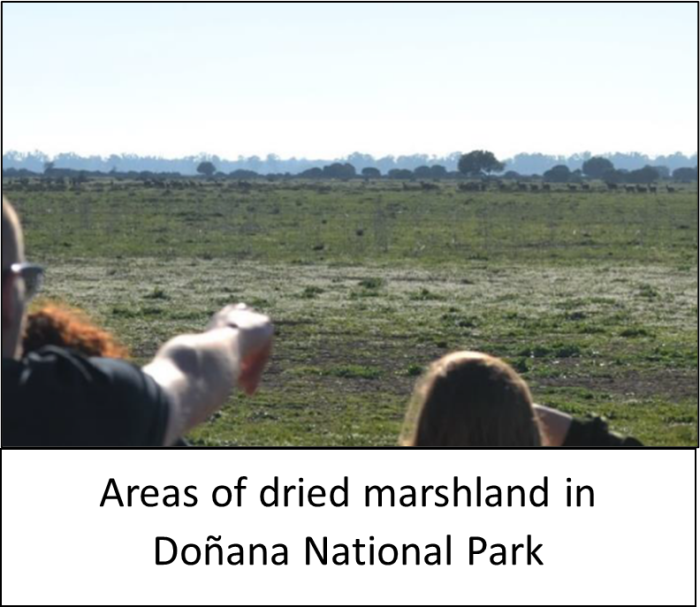
Our journey continued with a visit to the Doñana National Park, where we got a firsthand understanding of the complexities and fragility of this unique area. Even though it had rained the previous week, the landscape showed an obvious and alarming lack of water. Currently, the Park has 2% of its marshland area flooded, while the flooded area would normally be 70-80% this time of the year. This situation is leading to a decline in biodiversity and increased competition for resources with certain lagoons now empty. The marsh depends mainly on rainfall, which is not sufficient to recharge the water abstractions by agriculture from the aquifer. As a result, the water table has dropped so much that the Doñana landscape is extremely dry.
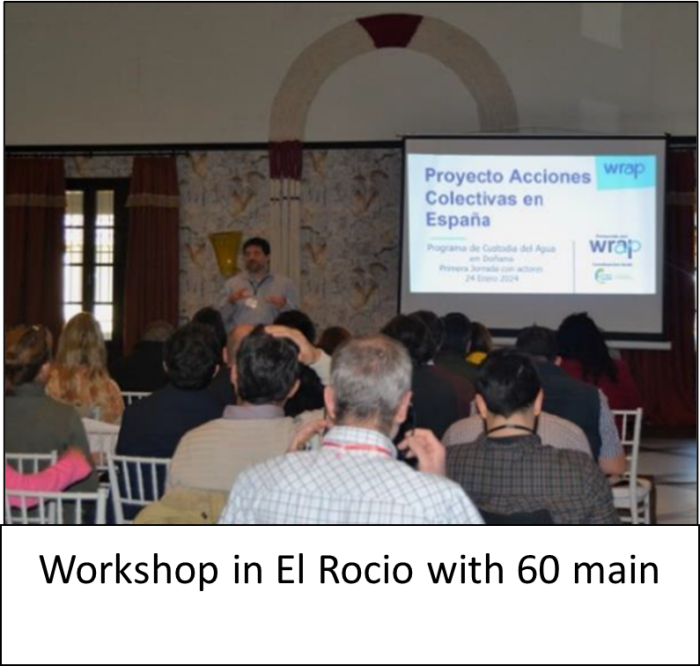
The following day, 24th January, we attended the 1st local multi-stakeholder workshop with over 60 participants – engaging producers, water managers, experts, international food companies / retailers, and NGOs.
The workshop introduced the project to local actors while offering international partners valuable insights from the expertise of specialists in the field of biodiversity and hydrogeology.
IPL were part of group discussions aimed at identifying collective action opportunities around four main topics: ensuring legality, improving the status of ecosystems and water bodies, managing water quantity and quality risks through GAPs, and activities to drive water stewardship practice. Carolina was indispensable when it came to stimulating some of the conversation within the group activity and with our suppliers.
Attendees were invited to sign up to become part of a Water Stewardship platform aimed at linking supply chain actors from the region and abroad to share information and find solutions that can be implemented collectively to address the shared water challenges in Doñana.
So, what did we learn?
- There is extremely high interest in collective action in the Doñana area among all stakeholders
- In Doñana, the situation is critical and the time to act is now!
- There are positive developments of action on the legality of water use, the implementation of GAPs and ecological restoration, all conducted by local organisations. There is really opportunity to expand these through collective action.
What’s our next steps:
- Increased awareness of the local situation, and urgency to act by sharing the Doñana Information Repository link (which was launched at the workshop)
- Communicate with suppliers to find out the specific locations of the farms they source from and start exploring their involvement in collective actions on legality, GAPs, and ecosystem restoration
- Join future meetings that will be met through WRAP to explore and define future collective action ideas and implementation strategies.
My thanks to Carolina for looking after me during this visit, and I look forward to sharing more with you on our ESG journey as we move forward.
If you want to find out more, or have any comments or queries, please get in touch (Tim.Brammer@ipl-ltd.com).

